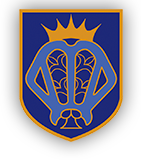Click here to enter the full Our Lady of the Rosary website
NURSERY APPLICATIONS - SEPTEMBER 2026
Our Lady of the Rosary Primary School Nursery is committed to providing quality Early Years education in a purpose built, safe and stimulating environment where every child can grow and develop a variety of skills.
Our Nursery is led by a fully qualified teacher and supported by two highly qualified and experienced Nursery staff.
We can offer 39 places from one of the following options:
- 30 hours funded care - no charge - plus lunch cost £ 2.76 (8.30am – 2.30pm)
- 15 hours funded care plus the opportunity to ‘top up’ to 30 hours plus lunch cost £ 2.76 (8.30am - 2.30pm)
- 15 hours funded care - no charge (5 mornings per week – 8.30am – 11.30am)
Parents with children attending all day will have the option to pay for their child to attend an additional hour until 3.30pm. This will be chargable.
Places will be offered in accordance with our Admissions Policy and applications are welcomed from both Catholic and Non-Catholic families.
The application process will be from 1st January 2026 to 27th February 2026.
We will be holding our open days on the following days :-
- Tuesday 13th January 2026 at 2.30 pm
- Thursday 29th January 2026 at 2.30 pm
- Monday 9th February 2026 at 2.30 pm
- Tuesday 24th February 2026 at 2.30 pm
Entrance will be via the Holbeach Gardens or Cloverdale gates. There is no requirement to book a place, please just come along.


Social Media